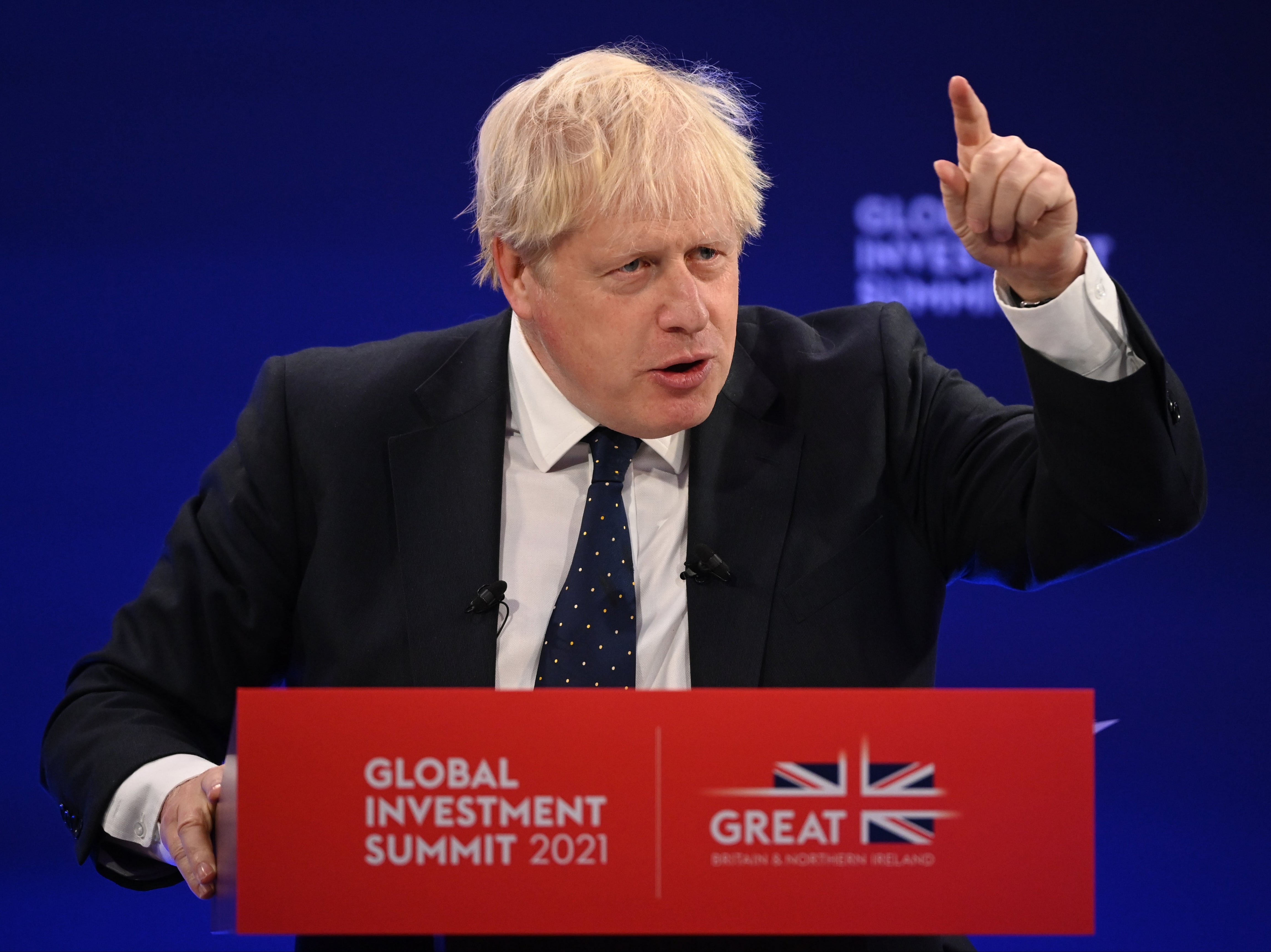The City was burned by Brexit, now Boris Johnson wants it to pay for net zero
The hard sell was there for global investors to see, now come the hard yards for the UK to seal some deals, writes Anna Isaac


Global Britain wants global investors’ money, and it isn’t mincing its words.
Summits, at which the government seeks to woo the world’s financial elite, always need a number. The UK got one: £.9.7bn – some was new, some had already been announced.
But there was a gap between the reality and rhetoric that went beyond grouping deals for a press release at Tuesday’s Global Investment Summit, held at the Science Museum in London. When the prime minister took to the stage, he asked for trillions, and he was getting billions.
“I am given to understand that there is $24 trillion represented in this room, and so I want to say to each and every one of those dollars you are welcome to the UK and you have come to the right place at the right time,” Mr Johnson said.
The crowd, which included chiefs from a host of the world’s largest investment banks and asset managers, was entertained, but it isn’t adding zeros to its cheques quite yet. The UK isn’t out of the woods in terms of laying out its post-Brexit vision in the cold, hard terms investors need: that means a clear and consistent message on regulation and tax, one investor who attended the summit told The Independent.
“My portfolio managers are not interested in the politics of this ‘levelling-up’ drive. We want to get a sense of the return on offer from public-private infrastructure partnerships, and we are looking for greener investment routes. And you know, for all the talk of getting our money, I don’t see a huge fiscal boost coming down the tracks in the UK,” they said. “The prime minister is an entertaining man, but I’d like greater clarity on his [long-term fiscal] plans.”
The prime minister is an entertaining man, but I’d like greater clarity on his [long term fiscal] plans
They drew comparisons with the EU and US, where there is a still a “clear political appetite” for additional funds to ease the transition out from the pandemic and bolster the recovery – a fiscal stimulus to match the hunger for foreign investment. The same financier added that more borrowing for the right kind of investment by the chancellor “wouldn’t put us off gilts just now”.
There was also an elephant in the room when it came to the hard sell – “buy, buy, buy” for the prime ministers “green is good” strategy.
Some investors didn’t like the blurring of lines of the UK’s commercial interests with the Cop26 summit. One former chair of a major international company said: “They are different ventures, and without clear aims at the summit, other than coal, why is the UK using Cop to sell its domestic investment agenda? At the moment it doesn’t look like a very successful one.”
Still, the same business chief wasn’t entirely critical: “This is a start. The UK is showing that it needs to learn how to sell itself again, and sell harder as it comes out the other side of Brexit. It’s not going to be easy, and it’s clunky, sure, but it needs to happen.”
The prime minister emphasised some of the UK’s longstanding advantages as a business and investment hub: the right time zone and the right (in international business terms) language. That is true. That’s a big reason why, despite being unsettled by the political storm of Brexit, some of Wall Street’s biggest banks kept their relatively hefty London operations largely intact.
That won’t be enough in the long run, however, investors who spoke to The Independent said the universal message was a need to quit conversations about financial deregulation and rip up visa requirements that make it tough to hire talent in the City.
In many ways, the City of London, after the age of anti-banker rage triggered by the Great Financial Crisis of 2008-9, became the Cinderella of Brexit. Boris Johnson has a long way to go, if he really wants to get trillions pumped into the UK: he’s got to try and make the City feel like the belle of the ball again.






Join our commenting forum
Join thought-provoking conversations, follow other Independent readers and see their replies
Comments